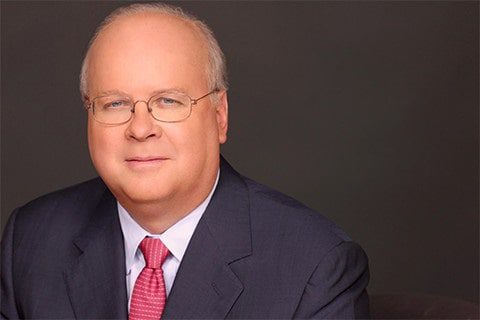
By Karl Rove
Opinion
America is home to 336 million people across 50 states and the District of Columbia. Yet the 2024 presidential race will be decided by seven states with less than a fifth of the U.S. population. These battlegrounds will get almost all the attention.
How most states will vote is already fairly certain. Political pros expect Donald Trump to take 24 states and 219 electoral votes; Joe Biden can likely count on 20 states and the District of Columbia with 226 electoral votes. (This assumes the same outcome as in 2020 in the two states that award votes by congressional district—Mr. Trump carries Maine’s rural Second District and Mr. Biden Nebraska’s Omaha-area Second District.)
That leaves seven key states with 93 votes: Arizona, Georgia, Michigan, Nevada, North Carolina, Pennsylvania and Wisconsin. Mr. Trump carried all of them except Nevada in 2016. In 2020, he took North Carolina by 1.34 points; Mr. Biden carried the other six by between 0.23 and 2.78. To prevail, Mr. Biden needs 45 of these states’ electoral votes; Mr. Trump, 51. Reaching either threshold will require winning at least three of the states.
Seven is fewer battlegrounds than we’ve had in recent elections. George W. Bush’s campaign in 2000, for which I was the strategist, fought in 21 battlegrounds and won 14. If Mr. Bush had lost only one state more, Al Gore would have won.
That the 2024 race has so few battlegrounds will have huge consequences for how the election plays out. Each candidate will concentrate his travel, organization and hundreds of millions of dollars in advertising in those seven states. The only reasons for either to go to nonbattleground states will be to raise money, sleep in his own bed, participate in debates (if they happen) or attend events with national impact—such as Ronald Reagan’s 1980 kickoff on the New Jersey seashore with the Statue of Liberty as his backdrop.
That there are so few battlegrounds will put more pressure on candidates to focus on issues specific to those seven states. In Michigan, they’ll talk about the auto industry; in Pennsylvania, natural-gas production. In Nevada, candidates must explain their view on the Yucca Mountain nuclear-waste facility, while in Arizona, besides the border, water issues will matter.
So will the quality of Democratic and Republican parties in these states. This is a problem for the GOP. The Democratic parties range from good to very good. They’ll be generously bankrolled by the Biden campaign and Democratic National Committee. By contrast, the Arizona, Georgia and Nevada Republican parties are in shambles. Michigan’s GOP ousted its chairman in January after she bankrupted the party. Her replacement, former congressman and ambassador Pete Hoekstra, can pull it together, but it’s unclear how much money the Republican National Committee can give any state party.
Governors matter as well. They have political operations that recently carried their states and supporters they can mobilize. Georgia and Nevada have Republican governors; the other five states have Democratic ones. North Carolina’s governor, Roy Cooper, is leaving office this year. What better way to advance his political career than by putting his state in Mr. Biden’s column?
These battlegrounds may be decided by whether Mr. Trump can grab more working-class Democrats and independents than Mr. Biden can flip suburban college-educated Republicans and independents. The proportion of college-educated voters in these states is around the national average. That’s a big reason they are so close.
Op-Ed by Mr. Rove, courtesy of rove.com, was first published in The Wall Street Journal.

Karl Rove served as Senior Advisor to President George W. Bush from 2000–2007 and Deputy Chief of Staff from 2004–2007. At the White House he oversaw the Offices of Strategic Initiatives, Political Affairs, Public Liaison, and Intergovernmental Affairs and was Deputy Chief of Staff for Policy, coordinating the White House policy-making process.
Mr. Rove has been described by respected author and columnist Michael Barone in U.S. News & World Report as “…unique…no Presidential appointee has ever had such a strong influence on politics and policy, and none is likely to do so again anytime soon.” Washington Post columnist David Broder has called Mr. Rove a master political strategist whose “game has always been long term…and he plays it with an intensity and attention to detail that few can match.” Fred Barnes, executive editor of The Weekly Standard, has called Mr. Rove “the greatest political mind of his generation and probably of any generation. He knows history, understands the moods of the public, and is a visionary on matters of public policy.”
Before Mr. Rove became known as “The Architect” of President Bush’s 2000 and 2004 campaigns, he was president of Karl Rove + Company, an Austin-based public affairs firm that worked for Republican candidates, non-partisan causes, and non-profit groups. His clients included over 75 Republican U.S. Senate, Congressional, and gubernatorial candidates in 24 states, as well as the Moderate Party of Sweden.

